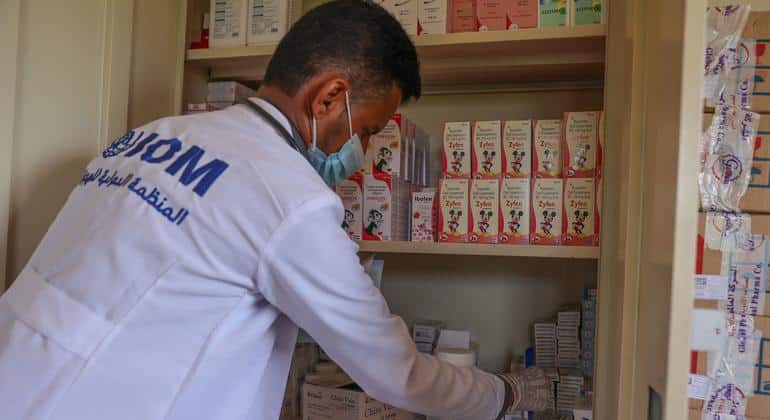Sure! Here’s the translation to American English:
—
The International Organization for Migration (IOM), with the support of the UK Foreign Office, has launched an urgent initiative in seven healthcare centers in Yemen. This intervention aims to maintain medical care in a country facing a severe health crisis, exacerbated by economic decline and ongoing insecurity. It is estimated that by 2025, nearly 20 million people will need healthcare, while approximately 40% of health centers are only partially operational or completely closed, suffering from serious shortages in staff, supplies, and infrastructure.
Abdusattor Esoev, IOM’s mission chief in Yemen, stated: “Every day, our teams see the impact that empty medicine shelves and overcrowded clinics have on families and entire communities.” This critical situation has been intensified by recent funding cuts, leaving 382 health centers without the necessary support, forcing many to reduce their services or shut down completely. This has hindered access to basic healthcare, especially in remote or conflict-affected areas.
To alleviate this emergency, the IOM has supplied medicines and other medical supplies to the seven healthcare centers, which serve approximately 295 patients daily. “By providing essential supplies and supporting frontline staff, we are not only responding to urgent needs but also keeping health services running for those who have nowhere else to turn,” Esoev added.
Since early 2025, Yemen has received over 37,000 migrants, many of whom arrive with severe health issues such as dehydration, malnutrition, or untreated chronic illnesses. Both migrants and displaced persons face numerous obstacles in accessing healthcare, including poverty, lack of documentation, language barriers, and social stigma. For many, IOM-supported health centers are the only source of free medical care, although the lack of staff and supplies makes it difficult to meet the growing demand amid the deepening crisis in Yemen.
The medical supplies provided by the IOM are expected to sustain the facilities for three to four months, although the organization has emphasized the urgent need for continuous support to ensure that these operations persist and can continue to provide vital care to those in need.
Source: MiMub in Spanish










